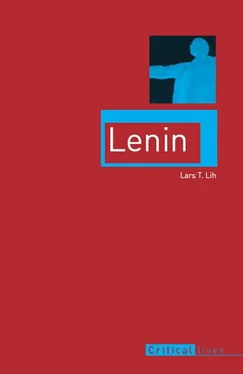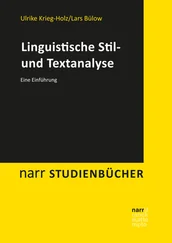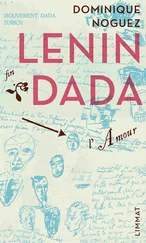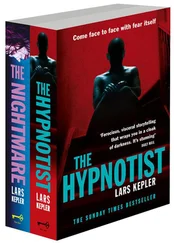Lars Lih - Lenin
Здесь есть возможность читать онлайн «Lars Lih - Lenin» весь текст электронной книги совершенно бесплатно (целиком полную версию без сокращений). В некоторых случаях можно слушать аудио, скачать через торрент в формате fb2 и присутствует краткое содержание. Город: London, Год выпуска: 2012, ISBN: 2012, Издательство: Reaktion Books, Жанр: Биографии и Мемуары, История, на английском языке. Описание произведения, (предисловие) а так же отзывы посетителей доступны на портале библиотеки ЛибКат.
- Название:Lenin
- Автор:
- Издательство:Reaktion Books
- Жанр:
- Год:2012
- Город:London
- ISBN:9781780230030
- Рейтинг книги:3 / 5. Голосов: 1
-
Избранное:Добавить в избранное
- Отзывы:
-
Ваша оценка:
- 60
- 1
- 2
- 3
- 4
- 5
Lenin: краткое содержание, описание и аннотация
Предлагаем к чтению аннотацию, описание, краткое содержание или предисловие (зависит от того, что написал сам автор книги «Lenin»). Если вы не нашли необходимую информацию о книге — напишите в комментариях, мы постараемся отыскать её.
Lenin — читать онлайн бесплатно полную книгу (весь текст) целиком
Ниже представлен текст книги, разбитый по страницам. Система сохранения места последней прочитанной страницы, позволяет с удобством читать онлайн бесплатно книгу «Lenin», без необходимости каждый раз заново искать на чём Вы остановились. Поставьте закладку, и сможете в любой момент перейти на страницу, на которой закончили чтение.
Интервал:
Закладка:
His emotional commitment to his scenario also made Lenin want to base it on the most solid authority possible. This explains Lenin’s love affair (the term is not too strong) with the writings of Marx and Engels. It also explains his life-long love–hate relationship with Karl Kautsky, who gave an authoritative stamp of approval to the key ideas of Old Bolshevism, but who later (as Lenin thought) failed to live up to his own preaching – thus becoming, in Lenin’s mind, the ultimate philistine and renegade.
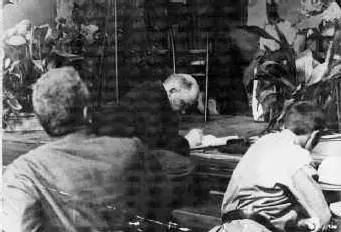
So far we have looked at some constant themes in Lenin’s outlook. We need also to consider the diversity of Lenin’s concerns throughout his career and the heroic scenario will help us out here as well. The scenario had an internal structure of three distinct episodes, as set forth already in the ‘banner sentence’ of 1894. These episodes grow out of the basic logic of class leadership. In the first episode the Social Democratic party is founded and becomes accepted as leader of the proletariat. This episode is summarized by Kautsky’s foundational formula about ‘the merger of socialism and the worker movement’. In the central episode the proletariat leads the narod in a crusade to overthrow the tsar, ‘the shame and curse of Russia’. In the final episode party and proletariat move toward the climax of the drama, socialist revolution itself.
Each of the three decades of Lenin’s political career matches up neatly with one of the three episodes. The full breakdown is given in the table overleaf. The heroic scenario thus gives us a handy device for recalling the overall contours of Lenin’s career. Since the scenario was an interpretive framework for events, not a prediction of concrete outcomes, it could be mapped onto events in a variety of ways. For example, Lenin’s scenario posits a rapid spread of Social Democratic influence among the workers. At any particular time a judgement call still has to be made about the actual extent of party influence. Although Lenin strove to be accurate and hard-headed in the empirical application of the Social Democratic scenario, he tended as a general rule to push for the most optimistic possible reading, up to and often past the point of plausibility.
A changed reading of the empirical situation could lead to crucial shifts of outlook. Although the goal adopted in 1917 – ‘steps toward socialism’ in Russia, prior to and independent of European revolution – was a far-reaching innovation in Lenin’s political platform, it remained within the logic of the original scenario. Lenin had always argued that socialist revolution was only possible when class conflict within the peasantry had reached an advanced stage, but the timing of this process was explicitly left open. In 1905–7, Lenin argued that the petty bourgeois peasant was still a fervent fighter for the democratic revolution. In 1917–18, Lenin was so eager to take ‘steps toward socialism’ that he grossly overestimated the extent of class polarization within the village.
Only at the end of his career did Lenin make serious adjustments to his scenario. In the period following the first anniversary of the revolution – late 1918 and early 1919 – Lenin was still completely convinced that things were ‘turning out just as we said they would’. The course of events soon forced him to take tentative steps beyond ‘the textbook à la Kautsky’, yet the basic logic of the scenario remained. Because Lenin still accepted the basic Marxist axioms that guaranteed his scenario, his adjustments caused him a great deal of anxiety and gave rise to a sense of encirclement by hostile forces such as international capitalism, petty-bourgeois peasantry and soviet bureaucrats. This anxiety was the result precisely of his earlier over-optimism, leading Lenin to make risky wagers that events did not justify.
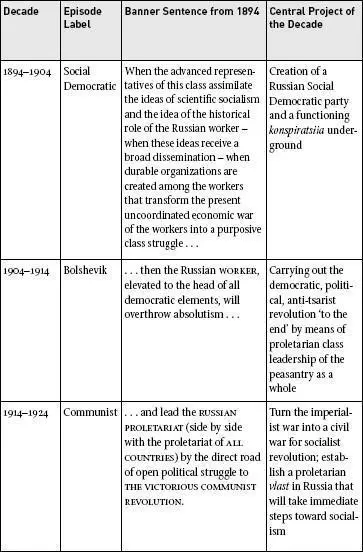
Even faced with these disappointments Lenin remained loyal to the spirit of his heroic scenario and called on the power of class leadership to accomplish one more round of miracles. His final advice to the party was: hold out against international capitalism while providing an inspiring model for Eastern countries, capture the loyalty of the middle peasant by revealing the advantages of socialism, and attack the cultural deficit both indirectly and head-on. The political testament contained in his last writings is the final, somewhat chastened but still recognizable version of his heroic scenario.
Historical Impact of Lenin’s Scenario
At some point after the Second World War mainstream academic scholarship took a wrong turning and became convinced that Lenin’s essential trait throughout his career was ‘worry about workers’, coupled with a dour, if pragmatic, pessimism. Historians came close to turning Lenin into the philistine he always abominated. This basic misapprehension of Lenin’s outlook made it impossible to give a coherent account of his development and his decisions at key points. The historical impact of the actual Lenin, for good or for ill, cannot be understood apart from his life-long heroic scenario.
The following brief speculative remarks should be prefaced with a disclaimer. Lenin is only a part of Bolshevism, which in turn is only a part of the Russian revolution, which in turn is only a part of the whole period of social upheaval from 1914 to 1921–2 that many Russians term a ‘time of troubles’. Furthermore, much of Lenin’s heroic scenario was not unique to him, but reflected much more widely held viewpoints. As a first approximation, we can say that the general theme of inspired and inspiring class leadership was a general feature of ‘revolutionary Social Democracy’, the theme of proletarian leadership of the narod (‘hegemony of the proletariat’) was a general feature of Bolshevism, while many of the details about class differentiation within the peasantry were peculiar to Lenin and perhaps his closest followers.
The immense cultural impact of Lenin’s heroic scenario on the Soviet Union stems from the fact, first, that it was heroic and, second, that it was a scenario. The culture of the Soviet Union always put a tremendous emphasis on the heroic, although this theme was expressed in different ways over the years. The theme of heroism was embedded in an explicit dramatic scenario about the world-historical mission of the Soviet Union that was propagated at all levels. Terry Pratchett’s novel Witches Abroad describes a somewhat similar society: a tyrannical queen forces everyone in her kingdom to act just as if they were characters in the canonical fairy tales. In the case of the Soviet Union and other communist countries a similar tyranny of narrative expectations met with a particular kind of resistance: the anekdot , the Soviet joke, whose specific flavour comes from subverting a heroic scenario. Socialist realism and the anekdot : these two poles of Soviet culture both stem from the heroic scenario. 4
One feature of Lenin’s heroic scenario that had an immense if underappreciated impact is what I have called the kukharka strategy: mass education for both men and women. I have explained the personal origin of this theme by pointing to Lenin’s popular nickname Ilich, son of Ilya, the educational reformer. But since the insistence on equal educational opportunity from both sexes goes back to both of Lenin’s parents, I should also speak of Lenin the son of Maria Aleksandrovna, as well as Lenin the brother of Anna and Maria, the husband of Nadezhda and the friend of Inessa. The economic consequences of the kukharka strategy are illuminated in a recent analysis by the economist Robert C. Allen. Before the Russian revolution Russia had the same non-European demographic pattern as, say, India: high death rate, high birth rate. Yet the Soviet Union did not have the same population explosion as India, with immense consequences for economic growth. The demographic disasters of the Soviet era – the civil war, the famines, the repressions and the Second World War – played an appreciable but not major impact in preventing this explosion. The main reason was a dramatically fast drop in the birth rate, and comparative analysis shows that the education of women was the key factor in this achievement. Allen concludes that ‘if industrialization and urbanization had proceeded less rapidly and if schooling had been expanded slowly and provided to men in preference to women, then population growth would have been explosive’. 5
Читать дальшеИнтервал:
Закладка:
Похожие книги на «Lenin»
Представляем Вашему вниманию похожие книги на «Lenin» списком для выбора. Мы отобрали схожую по названию и смыслу литературу в надежде предоставить читателям больше вариантов отыскать новые, интересные, ещё непрочитанные произведения.
Обсуждение, отзывы о книге «Lenin» и просто собственные мнения читателей. Оставьте ваши комментарии, напишите, что Вы думаете о произведении, его смысле или главных героях. Укажите что конкретно понравилось, а что нет, и почему Вы так считаете.
